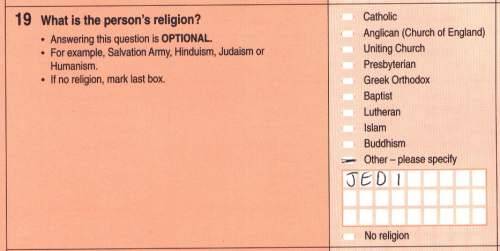Spirituality Balances What with How and Why.
"What do you believe?"
 |
| Frankly, this is the only accurate answer. |
God - check. Jesus - check. Pope - blank. Charity - check.
No, that doesn't fit at all. I don't believe in God in such a way that I could assert God's existence like a fact, like I was speaking to a census taker. Do you? If I were honest, I'd say that I try to have a relationship with love, in the sense that love can ever be independent of the loving subjects. I believe in a transcendent force of love in the universe? Does that even make sense? Is there a standardized box to check for that?
That's the answer you'd get if you ask "How do you believe?"
Historically, etymologically, the word "Believe" meant "belove". -lieve comes to English from the German word for love, and be- is a verb prefix that intensifies. So believe means something closer to "trust, hold in high esteem, be loyal to, love".
As we have seen before, the scientific revolution changed the way people saw themselves, scientifically and religiously. Suddenly believe comes to mean "think that this is true", with the implication that there is no proof that something is factual. "Belief in God" transforms into "Belief that God Exists".
 |
| Purgatory = spiritual DMV |
Do you see the difference?
This language makes us more sensitive to questions of doctrine - heaven/hell checklists - and less open to compassionate, open relationships. We all want more of those loving relationships, and we all could use shorter lines at the DMV. Finding that balance is the difference between healthy, welcoming spiritual communities and judgmental churches.
Next week I want to look at specific ways this seeps into our culture.

No comments:
Post a Comment